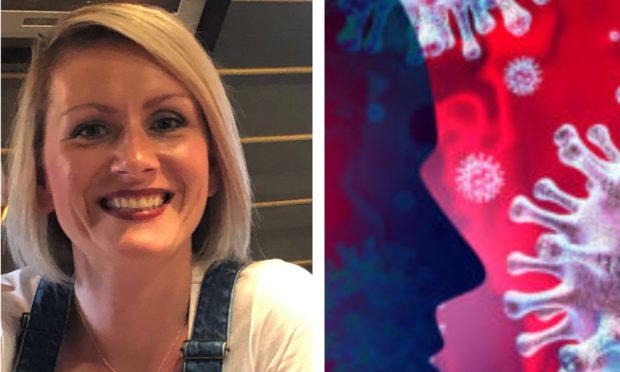A specialist coronavirus nurse working on the frontline has warned of a looming antibiotic crisis with the potential to kill 10 million people by 2050.
Antimicrobial stewardship nurse specialist, Jodie Christie, makes a 74-mile roundtrip to work 12 hours, caring for Covid-19 patients at Aberdeen Royal Infirmary.
And although she is proud of NHS Grampian for preparing for the pandemic, she has concerns about an imminent danger that also weighs on her mind.
After spending nearly two decades working within the NHS and in occupational health with oil industry employees, she has just been appointed to a specialist team working to help people who have drug resistant pneumonia and recurring urinary tract infections.
Ms Christie said: “Grampian takes a leading role in dealing with a problem others have barely thought about.
“Outside of our area and Tayside, trainee nurses receive very little or no official training at all about what the World Health Organisation has described as the biggest health problem facing human kind.”
Her current ward has been turned into a Covid-19 hub but staff were well prepared for the pandemic with adequate PPE and staff support mechanisms.
The current pandemic has further emphasised the dangers of infections as figures from Antibiotic Research show that 15% of those treated for Covid-19 developed secondary bacterial infections which current antibiotics could not cure.
Ms Christie added: “I don’t suppose there will ever be another time like it.
“I sincerely hope not, because seeing patients pass away alone, with just NHS staff to relay messages to them from family by phone or on I-Pads, is heart-breaking.”
The specialist team is being spearheaded by Arlene Brailey from Patient Support at Antibiotic Research UK.
She said: “NHS Grampian has been a real leader in highlighting and beating antibiotic resistance, through its fundraising and awareness activities and by the sheer fact it examines how to use the antibiotics we have now sensibly.
“I would hope in generations to come it will be remembered as one of the pioneers who helped stop a problem that could have become an international killer.”
